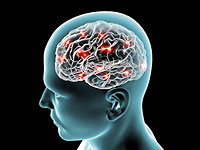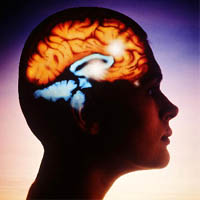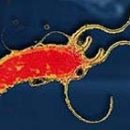From a physiological point of view, pain is an unpleasant experience associated with true or potentially possible damage to the body tissues. What happens in the brain in the event of pain? Why some people carry pain easily, and others are hard? About this in the article.
Content
 Pain — one of the most powerful emotionally painted sensations of a person who can change his life to make it unbearable and impossible.
Pain — one of the most powerful emotionally painted sensations of a person who can change his life to make it unbearable and impossible.
From a physiological point of view — Unpleasant experience due to true or potentially possible damage to the body tissues. However, this is not limited to the insight into pain, because along with physical pain, there is a psychological pain, for example, the pain of loneliness or pain of phantom, arising in patients after the amputation of the limb. How to regard the suffering of a person in the case when the threats for the body does not exist? Most likely pain — This is not just a reaction to tissue damage, it is more increasing and existing in the brain. What exactly is happening when pain appears, why perception of pain for each person individually, let's try to figure it out.
Physiology pain
The emergence of physical pain begins with irritation of specific pain receptors located in all tissues of the human body. Some scientists believe that no pain receptors exist, and to the appearance of pain leads to excessive excitation of any sensitive cells.
From peripheral receptors, pain signal is delivered by nervous fibers in the spinal and brain, there is an analysis of the incoming information and the corresponding answer is generated.
In the human brain there is a peculiar system of filtering nerve signals by their significance. Since pain is perceived as a signal of danger, this system puts it in the first place among other sensations, displacing the last of the human consciousness. With a certain degree of severity, pain completely sends a man's brain.
In addition to increasing the significance of pain, there is another direction of the nervous system — Reducing the intensity of the pain signal due to the response of unconditional reflex. For example, the hand itself is pulling away from the hot plate, without the participation of thought. In the occurrence of unconditional reflex, the spinal brain of man plays the greatest importance.
And pain and joy and love....
 Slide the fire pain helps damper brain systems producing neurotransmitters — Endorphine and Enkephalins, acting as natural painkillers. The ability of the central nervous system to synthesize these substances, as well as the number of receptors to them in the brain tissues of each person, the differences in the toleability of pain are connected with it.
Slide the fire pain helps damper brain systems producing neurotransmitters — Endorphine and Enkephalins, acting as natural painkillers. The ability of the central nervous system to synthesize these substances, as well as the number of receptors to them in the brain tissues of each person, the differences in the toleability of pain are connected with it.
Scientists have long been interested in the ability of endorphins as «Pain murderers», After all, in the arsenal doctors there are no drugs that can deliver a person from suffering and not to have side effects. Stimulation of endorphin synthesis centers could solve the problem of chronic pain for many people.
What brain structures produce neurotransmitters? Scientists have established that for the synthesis of endorphins when pain appears, as with the appearance of feelings such as joy, love, Euphoria meet the same parts of the brain. Endorphins not only facilitate pain, but also cause pleasure. Athletes standing at the Olympic pedestal do not feel pain and fatigue, they own a comprehensive feeling of the joy of victory.
The MJ opioid system is responsible for the production of endorphins, for their perception — MJ opioid receptors, they are responsible for introducing a morphine, heroin, heroin, methadone, which have the strongest painkillers, but have an undesirable side effect and are addictive.
Pain genes
Most recently, scientists unveiled a sensational discovery. It turns out that pain portability is encoded by a certain genome, that is, in fact, inherited.
The Pain Gene was named Dream (Downstream Regulatory Element Antagonistic Modulator). His role — Blocade of Endorphin Dinorphine, responsible for reducing pain. People with the Dream genome have a low pain threshold, and even visit the dentist for them becomes hellish torture. Those who have no ill pains of pain, are able to persist suffer severe pain and practically do not suffer from chronic pain.
Further — more, in experiments on mice scientists learned «turn off» Dream-gene animals, thereby sharply reducing their pain sensitivity. Experimental mice steadically transferred pain caused by them, including scalding boiling water, although they did not differ from their «full-fledged» Sorodi. The results of studies give reason to hope that in the near future medicines, inactivating Dream-gene, can be an effective means for the treatment of patients suffering from incurable chronic pain.
Pain memory
Exploring the gene mechanism for coding pain sensitivity on mice, scientists faced an unexpected effect. It turned out that the aggravated susceptibility of pain closely adjoins with a strong memory, that is, the processes that control the pain and memorization of information in the body of animals are related roots.
What is the benefit of this discovery for a person? It confirms that the source of pain is directly in the human brain, and not in damaged tissues, pain may exist separately from injury, as in the case of amputated limb or solitude pain. The central nervous system is able to memorize and produce pain independently. Conclusion: It is impossible to endure the pain, for example, the use of effective analgesics after surgery allows the patient to forget about the operation and accompanying her painful sensations.









